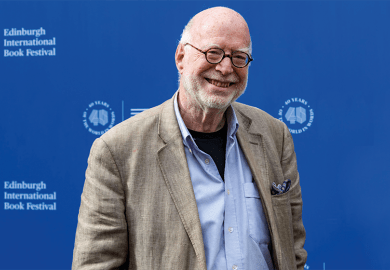Recent years have seen something of a convergence among anglophone and continental European philosophers around broadly pragmatic understandings of reason, truth and value. This movement is the result of dissatisfaction with two opposing positions. On the one hand, traditional realism and rationalism, which are deemed to be unacceptably metaphysical and even theological, assuming that reality has an established order and that human minds are intrinsically capable of grasping this; and, on the other, various forms of radical subjectivism and relativism, which are taken to be incoherent in holding that "order" is just a human projection, and "knowledge" a form of assertion.
Finding both sides of this opposition unsatisfactory, many philosophers in search of a third way have been drawn to the notion that order is to be found in the idea of rule-governed practices. For the most part such rules are implicit, but they shape and regulate thought and responsible action. While originating in human nature, they are not expressions of individual preference or local custom, but are constitutive of human mindedness, and they propose, as ends of action, the achievement of various social goods - their practical orientation being the basis of thinking of this via media as "pragmatism".
Versions of this idea can be found in Wittgenstein and Heidegger, with Anglo-American developments in the thought of Michael Dummett, Hilary Putnam and Richard Rorty, and continental ones in the writings of Karl-Otto Apel, Jurgen Habermas and Gianni Vattimo. Interestingly, these philosophers have also been critical of the increasing dominance of scientific modes of thought, have been concerned with cultural and political questions and have taken an interest in religion.
Between Naturalism and Religion gathers a number of recent essays and addresses in which Habermas argues the case for his own complex version of pragmatism. This is built around an exploration of the constitutive principles and purposes of various forms of human discourse, and its character is well known from his extensive writings. For those unfamiliar with these, part one, "The intersubjective constitution of norm-governed thought" provides sufficient form and detail; but it also reveals three weaknesses: verbosity, repetitiveness and a seeming need to assure readers of his familiarity with contemporary Anglo-American philosophy.
This foundational section establishes the ground on which Habermas then builds a philosophy of society and culture: rescuing human action from scientific reductionism while allowing that we are natural, evolved beings; and finding a place for religious commitment without yielding to its transcendentalist claims. The discussions are subtle and reward reflection; but most interesting is what they reveal about contemporary humanism. Like Rorty and other pragmatists, Habermas has come to believe that religion is not going away, and that it is better engaged within its moderate forms, especially when fundamentalism seems resurgent.
Here he follows Kant in thinking about the relation of religious sensibility to rational thought, but also applies himself to the present, recognising the role of religion in providing grounds for committing oneself to social values of justice, equality and respect. How seriously Habermas takes the need of engagement between pluralistic humanism and mainstream religion is strikingly illustrated by an exchange with Cardinal Joseph Ratzinger (now Pope Benedict XVI). Habermas' side of this dialogue appears in this book as "Prepolitical foundations of the constitutional state?". Here he writes: "The neutrality of state power vis-a-vis different world views, which guarantees equal individual liberties for all citizens, is incompatible with the political generalisation of a secularised world view."
This represents a significant step back from the ambitions of liberal humanism while remaining exposed to the counter that only a religious account of our origins and status can make sense of the core idea of human equality. The practical context of these essays may be the fear of scientism and the dread of fundamentalism, but the enduring philosophical question is whether there is any secure non-theological account of reason, truth and value.
Between Naturalism and Religion: Philosophical Essays.
By Jurgen Habermas. Polity Press 344pp, £55.00 and £18.99. ISBN 9780745638249 and 38256. Published 4 April 2008
Register to continue
Why register?
- Registration is free and only takes a moment
- Once registered, you can read 3 articles a month
- Sign up for our newsletter
Subscribe
Or subscribe for unlimited access to:
- Unlimited access to news, views, insights & reviews
- Digital editions
- Digital access to THE’s university and college rankings analysis
Already registered or a current subscriber? Login



